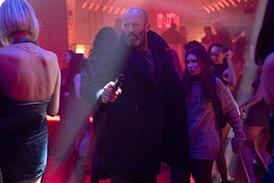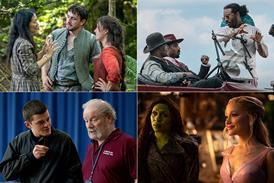Parvez Sharma'sIslam, My Love could be the most controversial documentary of the year. Jeremy Kay finds out why.
A film arrives this autumn with the potential to blow through institutionalised thinking in a manner that will make Michael Moore's polemics seem breezy by comparison.
Responses will inevitably be polarised, but 33-year-old film-maker Parvez Sharma says his aim in making Islam, My Love - the first documentary on Islam and homosexuality - was always clear.
'As a gay Muslim myself, I have found that many of the discourses on Islam are very divisive and involve the perception that Islam is a violent faith,' Sharma says from his East Coast home. 'We're taking the notion of 'jihad', which means 'struggle', and we're seeking to reclaim it and say this film is a jihad of love. I wanted to let gay and lesbian Muslims tell their own story.'
To this end, Sharma, who relocated from his native India to the US seven years ago, spent five years trawling through 12 counties, including Iran, Iraq, Egypt, the UK and Canada. 'I have used protagonists in the film who have become the most unlikely storytellers of Islam,' he says. 'I have mostly filmed at risk because government permissions weren't available to shoot in some countries because of the subject matter.
'I had to build relationships of trust so the protagonists could feel safe. Four years ago, I started talking to a young Moroccan lesbian and her Egyptian partner who lived in Egypt, and it was only last year that they agreed to be filmed. Their faith was so deeply held that they couldn't even articulate the word 'lesbian'.'
Linda Saetre of Saetre Film served as executive producer and is handling international sales. Sandi Dubowski (director of 2001 documentary Trembling Before G-d) produced, and Andrew Herwitz's The Film Sales Company is representing domestic rights.





















No comments yet